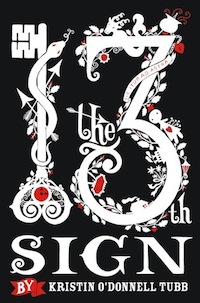Admit it. You read your horoscope. If not on a regular basis, then at least when your sun sign presents itself to you, leaping out from your Facebook stream in a flashy, winking attempt to flag you down. “Pssst! Scorpio! Yeah, you! Listen, buckle down today. It’s gonna be a rough ride.”
If your horoscope is positive, you are more likely to believe it. If it’s not, you’re not. And that might be the extent of the zodiac in your life. A temporary salve, a fun little distraction that allows you a moment of self-reflection in a go-go-go world.
Or maybe it’s more. Maybe the zodiac taps into something positively primeval in us. Maybe—just maybe—there is something to this idea that the way the stars align themselves on the day we are born helps solidify our personalities. That the universe is the Ultimate Calendar, and that our birthdate represents a snapshot of the time-space continuum.
Hard to say.
Astrology is the theory that the position of the stars and planets has an affect on our daily lives. Because of that, our birthdate determines quite a bit of our personality. Because of that, the waltz these celestial bodies dance across the heavens provides us with both opportunities and obstacles.
Most folks who know about these things agree that the Babylonians were the first to develop this idea, some say as far back as 2500 B.C. Like most humans, they were likely trying to make sense of the world around them, to find order in the chaos. Like most humans, they looked up to do that.
When you think about it, it makes sense. There was a pronounced link in the second millennium B.C. between the season of pregnancy and the health of the child. A woman who became pregnant in August (in the northern hemisphere) was outside working much of the day, absorbing all that yummy sunshine and gobbling her fill of fresh fruit and veggies. A woman who became pregnant in January, however, was far more susceptible to illness and a deficiency in hormones due to seasonal shifts. No prenatal vitamins or central heat and air for that poor gal.
And the kids themselves! A kid born in the spring had a few lackadaisical months to grow hardy before the cruel winter began. That child could relax, take her time with all that growing-and-learning business. But those January-born kiddos must’ve been thick-skinned from the get-go. They had to be tough, those winter-borns.
Researchers believe these environmental influences most definitely the shaped personality of the kid. To our ancestors, the birthdate-personality connection was real. The obvious result? The zodiac.
The idea took. The Babylonian zodiac calendar, which originally had 13+ horoscopes signs (see below), seeped into other cultures. Egyptians adopted the idea. Egyptian decans were star clocks of sorts, depicting 36 constellations that rose and fell, each marking a new phase. Decans were associated with diseases and healings, and each new phase held positives and negatives for health. They have been traced as far back as 2100 B.C., appearing on coffins from around that time.
Indian cultures welcomed these theories, too. Hindu nakshatras divide the ecliptic into 27 or 28 sectors. Each sector is governed by a lord who is fated with forecasting the life path of individuals within that sector. Hindu astrologers believe that children should be given names that please their nakshatra. These calendars started appearing around the beginning of the last millennium B.C.
The Chinese zodiac is based on the lunar calendar and appoints one of twelve animals to guide the children of that year. Pottery crafted in China depicts the Chinese zodiac as early as 475 B.C.
The idea stayed. The Greeks and the Romans both ate this stuff up. In fact, Greek astronomer Claudius Ptolemy, A.D. 90—A.D. 168, is the fella we can thank for our modern-day zodiac, known as the tropical zodiac by those who study this kind of thing.
But Ptolemy’s ideas were flawed. As we all know, things in space shift. The tropical zodiac doesn’t account for equinoxes, and now, all these many years later, the zodiac signs we know and love have no direct relationship with the zodiac constellations. Bummer.
So now we have a fight on our hands. Several fights, actually. Should we use the popular tropical zodiac, the one that flags us down on Facebook and screams at us from the pages of Seventeen magazine, or should we revert to the sidereal zodiac, the one more closely aligned with both the constellations and our long-forgotten Babylonian ancestors? Does the zodiac even apply to us anymore, what with all this fast food and air conditioning and 4-D ultrasounds and prenatal healthcare? Should we debunk it all and make ourselves a sandwich?
One thing is certain: the zodiac is here to stay, applicable or no. And they are fun, regardless of your belief in them. So hey, why not follow a few on Twitter? They range from individual sun signs to the whole shebang. And you can always believe just the positive ones.
Tropical 12-Sign Zodiac
Aries: March 21- April 19
Taurus: April 20—May 20
Gemini: May 21—June 20
Cancer: June 21—July 22
Leo: July 23—August 22
Virgo: August 23—September 22
Libra: September 23—October 22
Scorpio: October 23—November 21
Sagittarius: November 22—December 21
Capricorn: December 22—January 19
Aquarius: January 20—February 18
Pisces: February 19—March 20
Sidereal 13-Sign Zodiac
Aries: April 19—May 13
Taurus: May 14—June 19
Gemini: June 20—July 20
Cancer: July 21—August 9
Leo: August 10—September 15
Virgo: September 16—October 30
Libra: October 31—November 22
Scorpio: November 23—November 29
Ophiuchus: November 30—December 17
Sagittarius: December 18—January 18
Capricorn: January 19—February 15
Aquarius: February 16—March 11
Pisces: March 12—April 18
Kristin O’Donnell Tubb is the author of The 13th Sign (Feiwel & Friends/Macmillan January 2013) and Selling Hope. She can be found far too often on Facebook and Twitter. Oh, and she has a website, too: www.kristintubb.com.










